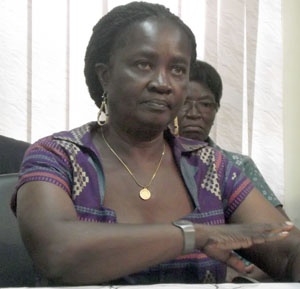Ghana currently plays a host to about 10,383 foreign students, representing 3.2 percent of the total student population of 315,000 in the country's tertiary education system.
These international students mostly come from various African countries including Nigeria, Cote D’Ivoire, Togo, Benin, Liberia, Cameroon and Sierra Leone among others. The increasing choice of Ghana as a destination for higher education in the sub-region has drawn economic benefits and heightened social concerns.
A number of tertiary institution heads have told the B&FT that a better environment and quality teaching compared to other African countries is luring international students, opening a new stream of fee-income for institutions in the country.
They said the situation gives government a chance to improve educational facilities to ensure quality education and also boost Ghana’s foreign income earnings, as long as the state sees the increase of foreign students in various universities as a benefit to the country.
With a global average of about 5 percent, Ghana spends over 6 percent of its Gross Domestic Product (GDP) on education. Ghana has one of the highest expenditures on education as a proportion of GDP compared to other countries.
In 2008, Ghana spent 5.8 percent of it GH¢30.2billion budget on education, while in 2009 education took 5.3 percent of the nation's GH¢36.6million budget.
Education consumed 5.5 percent and 6.25 percent on the nation's budget within 2010 and 2011 respectively.
Currently, the proportion of budgetary expenditure on education in Ghana is one of the highest in the world.
However, many civil society groups believe that this expenditure in education does not give the country commensurate output in terms of enrolment, retention and results.
Mr. Samuel Okudzeto, Ablakwa, Deputy Minister of Education, speaking at the Webster University, Ghana Global Citizenship World Cafe Event in Accra, said this is an indication that the country’s education system is very attractive to students in other countries.
"Ghana can longer pretend to be like an island. We have to build a quality education system that will be attractive to the international market," he said.
He said government will continue to invest in the education sector, and will encourage the private sector to participate to improving it, saying: "There is more room for private participation".
Meanwhile, experts have criticised the state of the country's education, saying there is no doubt the state of education in the country will restrict its ability to transform the economy from a middle-income country with HIPC infrastructure, low total factor productivity and weak systems to the status of a developed economy.
Already, employers complain about the quality of graduates at all levels of education -- with some decidedly giving preference to Ghanaians who have schooled abroad. The price of the crisis in education will be a major constraint on the country’s ability to accelerate economic development. Global Citizenship Programme
The Webster Global Citizenship Programme guides students to take a mix of courses that develop the skills and abilities needed to become a global citizen.
The Global Citizenship Programme looked at what role a university education can play in transforming a student into a global citizen and the value of such an education.
Webster graduates will confront unanticipated challenges, working in jobs that don't yet exist, and contribute to solving local, regional and global problems.
The Global Citizenship Programme is designed to help Webster students excel in this new world by developing a knowledge of human cultures and the physical and natural world, an awareness of personal and global responsibility, and the abilities to integrate and apply their entire education.
There are about 56 private university colleges in the country, and most of them have more foreign students than Ghanaian nationals. The Accra Institute of Technology, for instance, in 2014 academic year matriculated about 930 students of which more than 500 were international students.
Other institutions such as Sikkim Manipal University, Ghana Christian University College, All Nations University College all have foreign students coming from countries such Nigeria and Cote D’Ivoire among others.
General News of Wednesday, 24 June 2015
Source: B&FT













